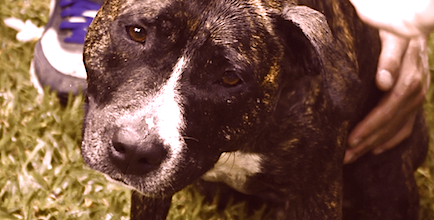Roundworms in Children: Causes, Risks, and Prevention Tips for Parents
For children who live with pets, roundworms and their eggs are an unseen risk and potential hazard.

This pet health content was written by a veterinarian, Dr. Pippa Elliott, BVMS, MRCVS. It was last reviewed on October 15, 2024


Don’t leave your pet’s safety to chance
Sign up for Petful recall alerts today.

Understanding the Importance of Hygiene for Roundworms in Children
Children’s hygiene habits are crucial, especially when it comes to preventing illnesses like roundworms in children. Yes, it’s possible for kids to pick up diseases from their pets. One of the most common worms in domestic animals, Toxocara roundworms, can pose serious health risks.
- Toxocara roundworms are found in both dogs and cats.
- Poor hygiene, such as not washing hands after playing outside or touching pets, increases the risk of infection.
To ensure your kids are safe from roundworm infections, it’s essential to promote good hand-washing practices after interacting with pets and outdoor play.
How Roundworms in Children Can Affect Their Health
Roundworms may not be the most exciting topic, but if you have kids, it’s important to keep reading. Between 2% and 31% of the European population has tested positive for Toxocara, meaning they’ve ingested Toxocara eggs, and their immune system responded.
To put this in perspective, at the higher end, nearly 1 in 3 people may have eaten roundworm eggs!
- Immune system response: In many cases, the immune system prevents these eggs from developing into the harmful larvae that cause health issues.
- In the UK, only 2 clinical cases of Toxocara-related disease occur per 1 million people annually.
Roundworms in children are more dangerous for those with weak immune systems, such as kids with cancer, those taking immunosuppressive drugs, or young children in general. These groups are at higher risk for visceral larva migrans (VLM), a condition where roundworm larvae migrate through the body’s tissue unchecked.
- Serious complications: VLM can lead to blindness, liver and lung damage, and even link to certain seizure activities in children.
To learn more about the transmission of Toxocara eggs, check out this detailed resource on Toxocariasis.
How Children Get Exposed to Roundworms in Children
Children are at the highest risk of exposure to roundworms in children from infectious “embryonated” eggs, which are older and mature eggs.
These eggs are commonly found in:
- Old feces
- Soil
- Clinging to dog or cat hair
Unfortunately, young kids, especially those aged 2 to 4, are more prone to playing in dirt and putting their fingers in their mouths, which increases their risk of contracting roundworms in children.
Since roundworm eggs can stick to a pet’s coat, it’s crucial to encourage regular hand-washing after stroking or petting a dog or cat, and especially before eating.

Common Symptoms of Roundworms in Children
Roundworm infections in children can sometimes go unnoticed, but there are key symptoms to watch out for. Early signs may include coughing, wheezing, and shortness of breath if larvae migrate to the lungs. As the roundworms develop into adults and settle in the intestines, children might experience:
- Abdominal pain or discomfort
- Nausea or vomiting
- Diarrhea
- Unexplained weight loss
- Visible worms in stool
In severe cases, infections may lead to malnutrition or growth delays due to the worms consuming nutrients from the body. If left untreated, the infection can escalate, causing complications like intestinal blockage or even lung inflammation
Risk Factors for Roundworms in Children
Some sobering facts highlight the increased risk of exposure to roundworms in children:
- The risk of catching Toxocara rises threefold if you have a dog in the house.
- The risk increases fivefold if you have a litter of puppies.
- The more pets you have, the higher the risk.
- Young animals or hunting cats pose the greatest risk.
Control and Prevention of Roundworms in Children
Although the risks sound alarming, clinical disease from roundworms in children is rare. However, taking steps to protect your family is essential. Here’s how you can reduce the risk:
- Regular worming: Worming your pets four times a year reduces egg shedding. Monthly worming can actually block egg production. In the UK, the British Veterinary Association (BVA) recommends at least quarterly worming treatments.
- Picking up feces: Cleaning up after your pets regularly reduces the chances of eggs contaminating the soil.
- Practicing good hygiene: Hand washing, especially after handling pets or playing outside, is crucial in preventing roundworm infections in children.
If you have young children, consider worming your dog every month. Many new-generation monthly treatments, such as Stronghold (UK), Revolution (US), and Advocate, are effective against roundworms.
This informative video gives you an up-close view of Toxocara roundworm and how it affects pets:
The Importance of Picking Up Pet Feces to Prevent Roundworms in Children
Prompt poop-scooping is a crucial control measure to prevent the spread of roundworms in children. By removing pet feces, you eliminate the chance for Toxocara eggs to enter the soil, where they can mature and become infectious.
- Freshly passed Toxocara eggs are not immediately infectious.
- It takes between 2 and 7 weeks for these eggs to develop inside the shell and “embryonate” or become infectious.
This means old feces left in the yard or park are a much greater risk for infection than freshly passed poop. Regular cleaning helps keep your yard safer for children. For more tips on responsible poop-scooping, check out this guide on poop-scooping.
Preventing Roundworm Infections in Children
Prevention is key when it comes to protecting children from roundworms. Following these hygiene and safety practices can significantly reduce the risk of infection:
- Regular hand washing: Teach children to wash their hands with soap and water after playing outside, handling pets, or before eating.
- Avoiding contact with contaminated soil: Ensure children do not play near animal feces, and encourage wearing shoes outdoors, especially in areas where dogs frequently roam.
- Pet care: Regular deworming of pets and prompt removal of feces from yards can help reduce the presence of roundworm eggs.
- Safe food practices: Wash fruits and vegetables thoroughly before eating, particularly if grown in soil that may be contaminated
For cat owners concerned about worms, learn more about how to protect your pets by reading this comprehensive guide on worms in cats.
If you’re a dog owner, ensure your pet stays healthy by understanding the risks and prevention tips for hookworms in dogs.
Good Hygiene to Prevent Roundworms in Children
Hand-washing is critical in preventing the spread of roundworms in children. The transfer of older eggs from fingers to mouth is one of the most common ways infections occur. Studies show that those 31% of the European population who tested positive for Toxocara likely ingested dog fecal material.
It’s essential for everyone—both adults and children—to wash their hands:
- After petting animals
- After gardening
- Before eating
Good hygiene habits can stop mature eggs from entering the mouth, significantly reducing the risk of serious illness. If there’s one key takeaway, it’s the importance of teaching children to wash their hands regularly.
When to Seek Medical Treatment for Roundworm Infections
While mild cases of roundworms in children may resolve with medical treatment, there are situations where seeking immediate help is crucial. Parents should contact a healthcare provider if their child shows any of the following symptoms:
- Persistent abdominal pain or swelling
- Visible worms in vomit or stool
- Difficulty breathing, wheezing, or coughing that doesn’t resolve
- Unexplained weight loss or malnutrition
- Intestinal blockages, such as severe constipation or vomiting
Early diagnosis and treatment with antiparasitic medications can prevent complications and help eliminate roundworms from the body
Frequently Asked Questions (FAQ)
What are the symptoms of roundworms in children?
Symptoms of roundworms in children can include coughing, fever, stomach pain, vomiting, and in severe cases, vision problems or seizures.
How do I know if my child has worms?
If your child has worms, they may show symptoms like unexplained weight loss, visible worms in stool, or frequent stomach pain.
What happens if a human gets roundworms?
In humans, roundworms can cause infections that affect the lungs, liver, or eyes, leading to serious health issues if untreated.
Can roundworms go away on their own?
Roundworms do not typically go away on their own and often require medical treatment to prevent complications.
References
- “Roundworm Infection in Children.” Stanford Children’s Health. https://www.stanfordchildrens.org/en/topic/default?id=roundworm-infection-in-children-160-54
- “Roundworms: Parasitic Infection, Pinworm Symptoms, Treatment.” Cleveland Clinic. https://my.clevelandclinic.org/health/diseases/15240-roundworms
- “Ascariasis: Symptoms, Causes & Transmission, Treatment.” Mayo Clinic. https://www.mayoclinic.org/diseases-conditions/ascariasis/symptoms-causes/syc-20369593
- “Parasites – Children.” CDC. https://www.cdc.gov/parasites/children/index.html








